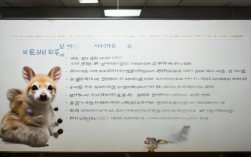初中级水平 (适合初中生或英语初学者)
Knowledge is Like Building a House**

Knowledge is very important for our life. How can we get knowledge? The answer is simple: by accumulating it little by little.
Imagine you want to build a strong house. You need many bricks. If you only have one or two bricks, you can't build anything. But if you keep adding more and more bricks every day, one day you will have a beautiful and strong house. Knowledge is just like these bricks.
Every day, when we learn a new English word, read a story in a book, or listen to our teacher's class, we are adding a "brick" to our house of knowledge. At first, it might seem slow. But over time, these small pieces of knowledge add up. We can read better, write better, and understand the world better.
So, we should never stop learning. Every new thing we learn is a small step, but it helps us build a strong future. Let's keep learning and accumulate knowledge every day!
中高级水平 (适合高中生或具备一定英语基础的学习者)
The Power of Accumulation: Building Your Knowledge**
It is often said that "Rome wasn't built in a day." This ancient wisdom perfectly captures the essence of acquiring knowledge. True understanding and expertise are not the result of a single moment of brilliance, but the product of patient and consistent accumulation.
Knowledge is best understood as a process of construction. Think of it like building a magnificent skyscraper. It begins not with the towering structure we see, but with a single, solid foundation. Each brick laid, each beam secured, and each wire connected represents a new piece of information—a fact, a concept, or a skill learned. Without these countless, often seemingly insignificant, individual components, the entire structure would collapse. Similarly, a profound grasp of a subject is built upon a vast foundation of accumulated knowledge.
This process requires time, effort, and persistence. There are no shortcuts. A student cannot become a master mathematician by simply reading a textbook; they must solve hundreds of problems, making mistakes and learning from them along the way. A musician does not learn an instrument overnight; they practice scales and melodies daily, slowly building muscle memory and musicality. Each small step, each lesson learned, contributes to the final edifice of their expertise.
In conclusion, the journey of knowledge is a marathon, not a sprint. Embracing the power of accumulation allows us to build a strong, resilient, and towering intellect. By valuing each new piece of information and committing to the lifelong process of learning, we equip ourselves with the most powerful tool for navigating and succeeding in an ever-changing world.
大学/备考水平 (适合大学生、雅思/托福备考者)
The Cumulative Nature of Knowledge: An Indispensable Pillar of Human Progress**
The acquisition of knowledge is fundamentally a cumulative process, a cornerstone upon which civilization is built and upon which individual intellect is sharpened. Unlike fleeting epiphanies that may offer temporary insight, genuine expertise and deep understanding are forged through the diligent and sustained effort of accumulating knowledge over time. This principle, that knowledge is built incrementally, is not merely a pedagogical tool but a fundamental law of cognitive development.
To illustrate this, consider the edifice of human science. The theory of gravity, as articulated by Newton, was not conceived in a vacuum. It was built upon the accumulated astronomical observations of Copernicus and Kepler, the foundational work of Galileo, and the mathematical principles laid down by earlier scholars. Newton himself famously stated that he "stood on the shoulders of giants," acknowledging that his monumental discovery was only possible because he had inherited and synthesized the vast store of knowledge accumulated by his predecessors. Each scientific breakthrough is a testament to this process, where new knowledge is constructed upon a pre-existing foundation of established facts and theories.
On an individual level, this cumulative principle is equally paramount. The journey to becoming an expert in any field, be it medicine, law, or computer science, is a testament to this reality. A medical student does not diagnose complex diseases on their first day; they spend years accumulating foundational knowledge in anatomy, biochemistry, and pharmacology. This gradual accumulation of information, skills, and mental models transforms a novice into a seasoned professional capable of critical thinking and innovation. The brain itself, through neuroplasticity, reinforces these pathways with each new piece of information, making the process of accumulation both a mental and a physical phenomenon.
In an era characterized by rapid information proliferation, the ability to effectively accumulate and integrate knowledge is more crucial than ever. It is the antidote to superficiality and the foundation for true wisdom. Therefore, we must cultivate a mindset that values patience, persistence, and continuous learning. For it is through the unwavering commitment to this cumulative process that we not only build our own intellectual fortresses but also contribute meaningfully to the collective edifice of human knowledge.
核心词汇与短语解析
版本一
- accumulate: v. 积累
- brick: n. 砖,比喻知识的基本单位
- add up: 累计起来,增加
版本二
- essence: n. 本质,精髓
- acquiring: v. 获得,习得 (acquire的ing形式)
- expertise: n. 专业知识,专业技能
- patient and consistent: 耐心且持续的
- construction: n. 建设,建造
- magnificent skyscraper: 宏伟的摩天大楼
- solid foundation: 坚实的基础
- seemingly insignificant: 看似微不足道的
- profound grasp: 深刻的理解
- marathon, not a sprint: 马拉松,而不是短跑 (比喻需要长期坚持)
- resilient: adj. 有弹性的,能复原的 (此处指思维能力强)
- towering intellect: 卓越的才智
版本三
- cumulative: adj. 累积的
- indispensable pillar: 不可或缺的支柱
- pedagogical tool: 教学工具
- cognitive development: 认知发展
- edifice of human science: 人类科学的宏伟大厦
- conceived in a vacuum: 在真空中构想 (比喻凭空想象)
- astronomical observations: 天文观测
- predecessors: n. 前辈,先行者
- synthesize: v. 综合,合成
- monumental discovery: 里程碑式的发现
- paramount: adj. 至高无上的,最重要的
- novice: n. 新手
- seasoned professional: 经验丰富的专业人士
- neuroplasticity: n. 神经可塑性
- proliferation: n. 激增,扩散
- superficiality: n. 肤浅,表面性
- unwavering commitment: 坚定不移的奉献
万能句型与结构
-
引出主题/观点:
- It is often said that... (俗话说...)
- Knowledge is best understood as... (知识最好被理解为...)
- The acquisition of knowledge is fundamentally a... process. (知识的获取本质上是一个...的过程。)
-
进行比喻论证:
- Imagine you want to build... (想象你想建造...)
- Knowledge is just like... (知识就像...)
- Consider the edifice of... (让我们...的宏伟大厦来考虑...)
- Think of it like building... (把它想象成建造...)
-
阐述过程与重要性:
- This process requires time, effort, and persistence. (这个过程需要时间、努力和毅力。)
- Each small step... contributes to the final... (每一个小步骤都为最终的...做出了贡献。)
- Without these..., the entire structure would collapse. (没有这些...,整个结构将会倒塌。)
-
总结升华:
- In conclusion, the journey of knowledge is a marathon, not a sprint. (知识的旅程是一场马拉松,而不是短跑。)
- Therefore, we must cultivate a mindset that values... (我们必须培养一种重视...的心态。)
- For it is through... that we not only... but also... (因为正是通过...,我们不仅.....) 能帮助您更好地理解和撰写关于“知识是积累”的英语作文!











